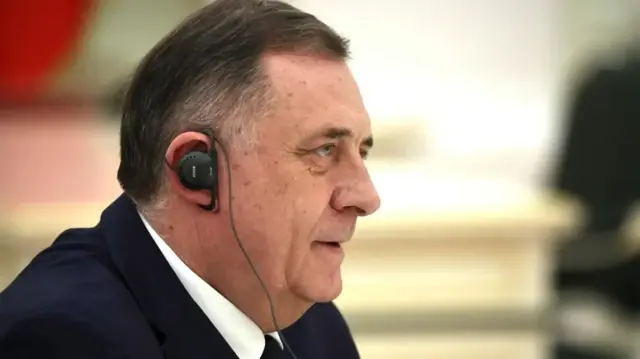US lifts sanctions on Bosnian Serb leader Milorad Dodik

The Trump administration has removed sanctions against Bosnian Serb leader Milorad Dodik, his family, and associates, reversing penalties imposed for undermining the Dayton Peace Agreement. The US Treasury Department provided no explanation for lifting the restrictions first enacted in 2017.
The United States has revoked sanctions against Bosnian Serb leader Milorad Dodik, his family members, and close associates in a move that reverses previous measures targeting the nationalist politician. The US Treasury Department's Office of Foreign Assets Control (OFAC) announced the decision on Wednesday without providing specific reasoning for lifting the restrictions that had been imposed for undermining the Dayton Peace Agreement that ended Bosnia's civil war.
History of Sanctions
Dodik was initially sanctioned by the Obama administration in 2017 for defying Bosnia's Constitutional Court and obstructing the implementation of the Dayton peace accord. At that time, the Treasury Department accused him of threatening "the sovereignty and territorial integrity of Bosnia and Herzegovina." The Biden administration subsequently imposed additional sanctions on Dodik in 2022, maintaining pressure on the controversial political figure.
Legal Challenges and Political Stance
Earlier this year, a Bosnian court sentenced Dodik to one year in prison and barred him from political office for six years for defying the authority of the international official overseeing implementation of the 1995 Dayton Peace Agreement. The Serb leader has become known for his frequent secessionist rhetoric, repeatedly arguing that Bosnia should either adopt a new political agreement or separate entirely, positions that have drawn international criticism and legal consequences.
The Dayton Framework
The 1995 Dayton Peace Agreement ended the Bosnian War and established Bosnia and Herzegovina as a state composed of two entities: the Federation of Bosnia and Herzegovina (FBiH) and Republika Srpska (RS). Despite the agreement bringing an end to the conflict, disagreements about its interpretation and implementation have remained persistent sources of political tension in the Balkan nation, with Dodik frequently challenging the central government's authority.
Reklam yükleniyor...
Reklam yükleniyor...







Comments you share on our site are a valuable resource for other users. Please be respectful of different opinions and other users. Avoid using rude, aggressive, derogatory, or discriminatory language.